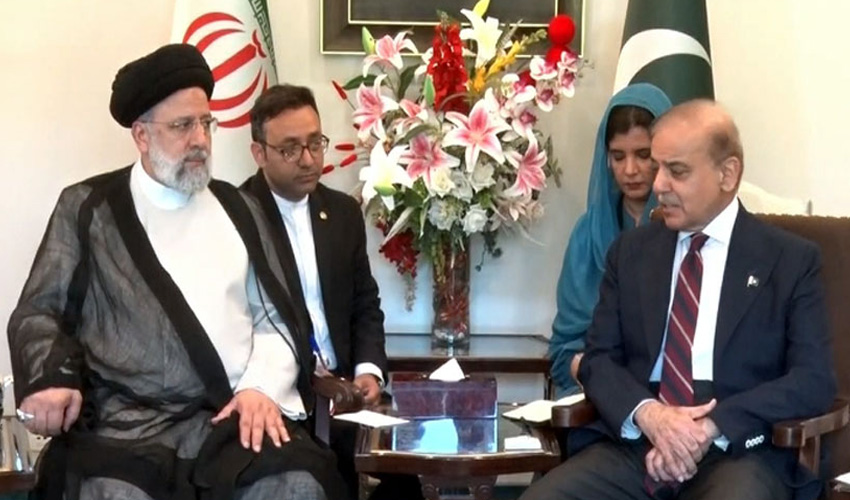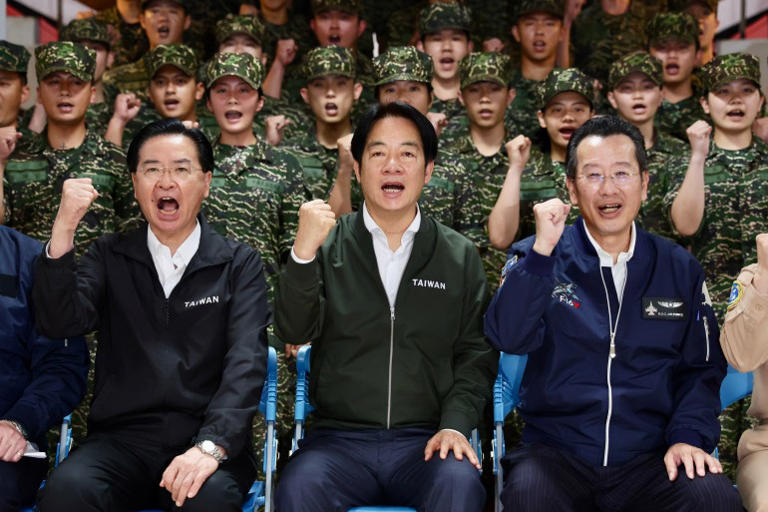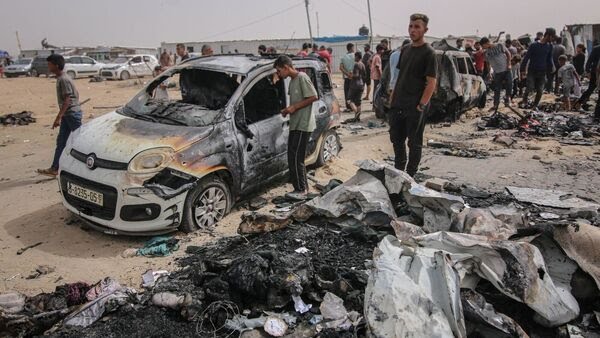Iran and Pakistan Unite

In a significant move, Pakistan and Iran have joined forces to tackle terrorism. During talks between Prime Minister Shehbaz Sharif and Iranian President Ebrahim Raisi in Islamabad, both leaders discussed ways to strengthen ties across politics, economics, trade, and culture.
Their meeting comes after recent air strikes exchanged between the two countries over alleged terrorist hideouts. Despite this tension, Pakistan and Iran are showing a willingness to address shared security concerns through dialogue.
Raisi’s visit is particularly notable as he’s the first head of state to visit Pakistan since the general elections. Upon arrival, he was warmly received by Prime Minister Sharif, and they discussed various strategies to combat terrorism together.
The focus wasn’t just on security. Both leaders also talked about boosting economic relations, trade, investment, and cultural exchanges. These efforts aim to bring mutual prosperity and understanding between the two nations.
Given the complex security challenges they both face, cooperation against terrorism is vital. Both countries have dealt with terrorist threats and realize the need to work together to address them effectively.
Despite occasional tensions, Pakistan and Iran have consistently sought to maintain friendly relations. This commitment to diplomacy was evident in the recent meeting between Sharif and Raisi.
Beyond security, they also explored ways to increase people-to-people interactions and cultural ties. This includes promoting tourism, educational exchanges, and collaboration in arts, literature, and sports.
Overall, the meeting between Sharif and Raisi marks a positive step in strengthening the bond between Pakistan and Iran. By collaborating against terrorism and boosting bilateral cooperation, they aim for a more stable and prosperous future for both nations.

A significant tour taking geopolitical tensions into consideration
To know more : click below
Why is Iran’s PrWhy is Iran’s President Ebrahim Raisi visiting Pakistan? | Politics News | Al Jazeeraesident EbrahimWhy is Iran’s President Ebrahim Raisi visiting Pakistan? | Politics News | Al JazeeraWhy is Iran’s President Ebrahim Raisi visiting Pakistan? | Politics News | Al JazeeraRaisi visiting Pakistan? | Politics News | Al Jazeera





